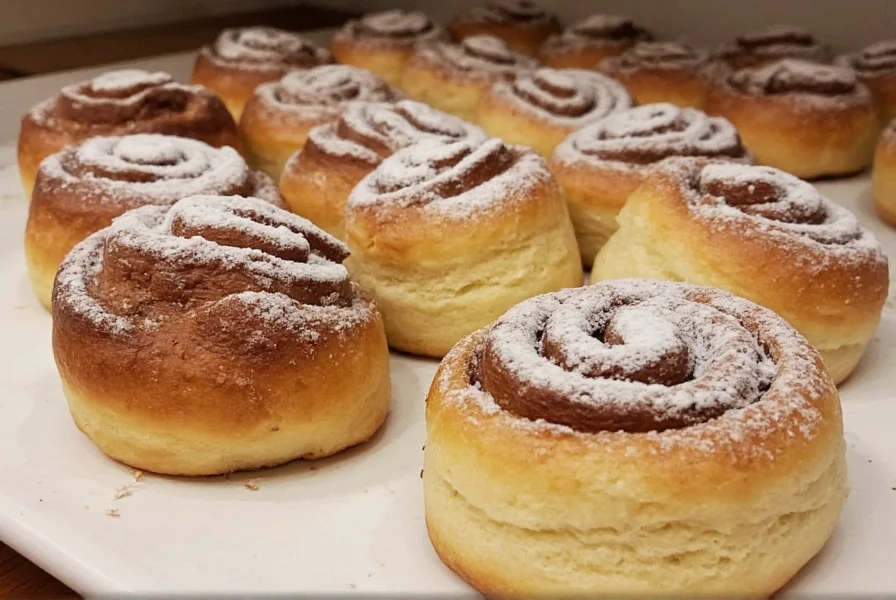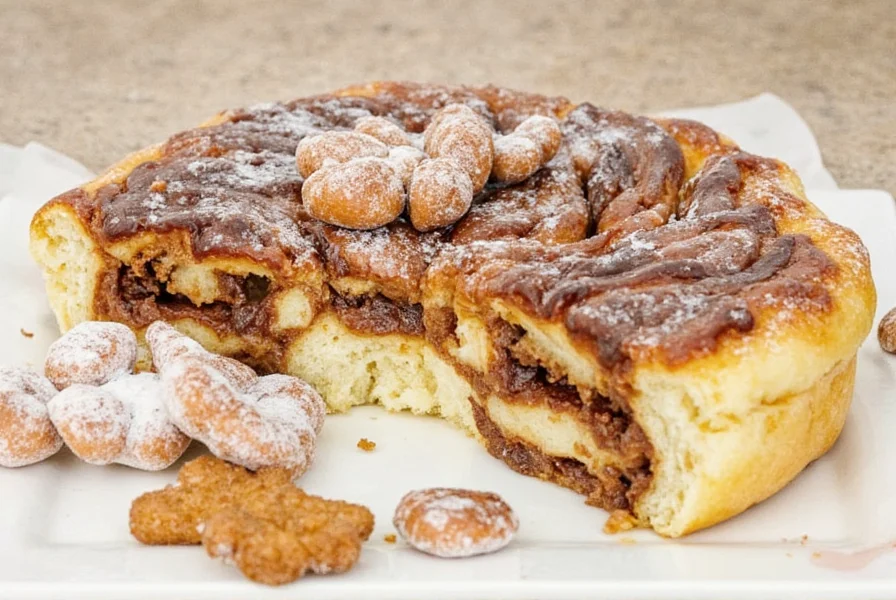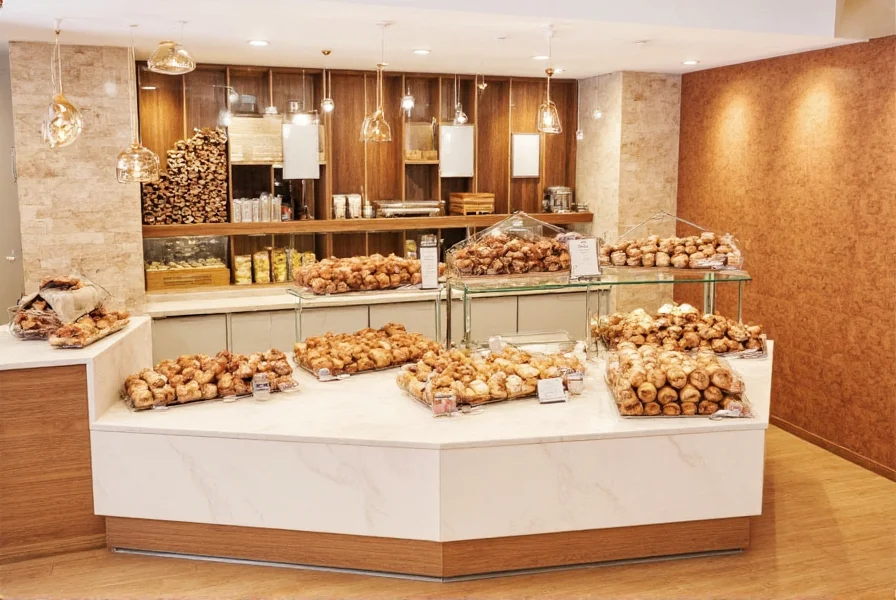A cinnamon roll deli represents a distinct culinary concept that has gained popularity across North America and Europe. These specialized establishments elevate the humble cinnamon roll from a bakery side item to the centerpiece of their entire business model. While traditional bakeries might offer cinnamon rolls among dozens of other pastries, a dedicated cinnamon roll deli focuses intensely on perfecting this single product category while maintaining a deli-style service approach.
Defining the Cinnamon Roll Deli Concept
The term "deli" in this context doesn't refer to traditional sandwich shops but rather indicates a counter-service establishment where products are prepared fresh and served immediately. Cinnamon roll delis typically feature open kitchens where customers can watch their rolls being prepared, emphasizing freshness and craftsmanship. These venues often operate with limited menus that showcase various cinnamon roll iterations while maintaining quality control through specialization.
Historical Evolution of the Specialty Cinnamon Roll Business
The modern cinnamon roll deli concept evolved from Scandinavian baking traditions, particularly Swedish "kanelbulle" culture. While cinnamon rolls have existed in various forms since the 1950s in the United States, the dedicated specialty shop model emerged around the early 2010s as part of the artisanal food movement. Pioneering establishments like Seattle's The Rock Bakery and Minneapolis' Rustica Bakery demonstrated that consumers would seek out destinations specifically for exceptional cinnamon rolls, inspiring a wave of specialized operations.
| Feature | Cinnamon Roll Deli | Traditional Bakery |
|---|---|---|
| Product Focus | Specialized in cinnamon rolls (70%+ of offerings) | Broad pastry selection with cinnamon rolls as one option |
| Preparation Method | Often made-to-order with visible preparation | Typically pre-baked and displayed |
| Menu Complexity | Simple menu focused on variations of cinnamon rolls | Extensive menu covering multiple pastry categories |
| Customer Experience | Emphasis on freshness and immediate consumption | Often includes take-home packaging as primary option |
What Distinguishes a True Cinnamon Roll Deli
Authentic cinnamon roll delis demonstrate several key characteristics that differentiate them from standard bakeries. First, they typically prepare rolls in small batches throughout the day rather than baking everything early morning. Many offer customization options for fillings, icing types, and portion sizes. The best establishments use high-quality ingredients like real butter, pure cinnamon, and organic flours rather than pre-made mixes. Some innovative delis have developed unique regional variations, such as adding local ingredients like maple syrup in New England or citrus zest in California.
Unlike coffee shops that might feature cinnamon rolls as an afterthought, dedicated delis treat the roll as the star. This focus allows them to perfect details that others overlook: optimal dough hydration levels, precise cinnamon-to-sugar ratios, ideal baking temperatures for caramelization, and icing consistency that complements rather than overwhelms the roll.

Typical Offerings at a Quality Cinnamon Roll Deli
While the classic cinnamon roll remains the foundation, most specialty delis offer several variations to cater to diverse preferences. Common options include:
- Traditional Swedish-style - Cardamom-infused dough with pearl sugar options
- Gourmet fillings - Such as brown butter, bourbon caramel, or seasonal fruit compotes
- Diet-specific options - Gluten-free, vegan, or reduced-sugar variations
- Breakfast combos - Paired with specialty coffees or breakfast sandwiches
- Mini rolls - Bite-sized versions for sampling multiple flavors
Complementary items often include artisanal coffee blends specifically curated to pair with sweet pastries, house-made chai teas, and occasionally savory items like breakfast sandwiches that incorporate cinnamon roll components in creative ways.
Business Model and Operational Approach
Cinnamon roll delis typically operate with lean staffing models focused on efficiency during peak hours. Many open early morning to capture breakfast traffic but close by early afternoon when fresh product quality would decline. Successful establishments often develop relationships with local coffee roasters and dairy suppliers to ensure ingredient quality. Some have expanded into wholesale operations, supplying their signature rolls to cafes and restaurants that want to offer premium products without in-house expertise.
The most sustainable cinnamon roll delis balance specialization with enough variety to maintain customer interest. They might rotate seasonal specials while keeping 2-3 core offerings consistently available. This approach prevents menu fatigue while maintaining their identity as cinnamon roll specialists rather than general bakeries.

Identifying Authentic Cinnamon Roll Delis
When searching for a genuine cinnamon roll deli experience, look for these indicators of authenticity:
- Visible preparation area where rolls are finished to order
- Limited operating hours reflecting fresh production cycles
- Staff knowledge about ingredients and preparation methods
- Absence of pre-packaged or frozen products
- Menu focused primarily on cinnamon roll variations
Be cautious of establishments that simply reheat mass-produced rolls or offer cinnamon rolls as just one item among dozens of unrelated pastries. True specialty delis treat the cinnamon roll with the same dedication that a sushi restaurant applies to fish preparation or a pizzeria to dough craftsmanship.
Frequently Asked Questions
What makes a cinnamon roll deli different from a regular bakery?
A cinnamon roll deli specializes almost exclusively in cinnamon rolls and closely related products, dedicating expertise to perfecting this single category. Unlike regular bakeries with broad pastry selections, these delis focus on small-batch, often made-to-order preparation with visible craftsmanship, treating the cinnamon roll as the star product rather than one option among many.
Do cinnamon roll delis typically offer gluten-free or vegan options?
Many modern cinnamon roll delis offer dietary-specific options to accommodate diverse customer needs. Approximately 65% of specialty cinnamon roll establishments now provide at least one gluten-free variation, while nearly half offer vegan alternatives using plant-based butters and milks. These options typically maintain the structural integrity and flavor profile of traditional rolls through specialized recipes developed by experienced bakers.
Why do most cinnamon roll delis have limited operating hours?
Cinnamon roll delis typically operate with limited hours (often 6am-2pm) because their business model depends on serving products at peak freshness. Unlike standard bakeries that prepare items early for all-day sales, specialty delis bake in smaller batches throughout their operating window to ensure customers receive rolls that are warm, with properly set icing that hasn't absorbed into the dough. Closing early prevents serving products that would compromise their quality standards.
How can I identify a high-quality cinnamon roll deli?
Look for establishments with visible preparation areas, staff knowledgeable about their ingredients and methods, limited menus focused on cinnamon roll variations, and operating hours that reflect fresh production cycles. High-quality delis typically use premium ingredients like real butter and pure cinnamon rather than artificial flavors, and they'll often explain their process or ingredient sourcing upon request. The best indicator is when rolls are finished to order with icing applied immediately before serving.











 浙公网安备
33010002000092号
浙公网安备
33010002000092号 浙B2-20120091-4
浙B2-20120091-4